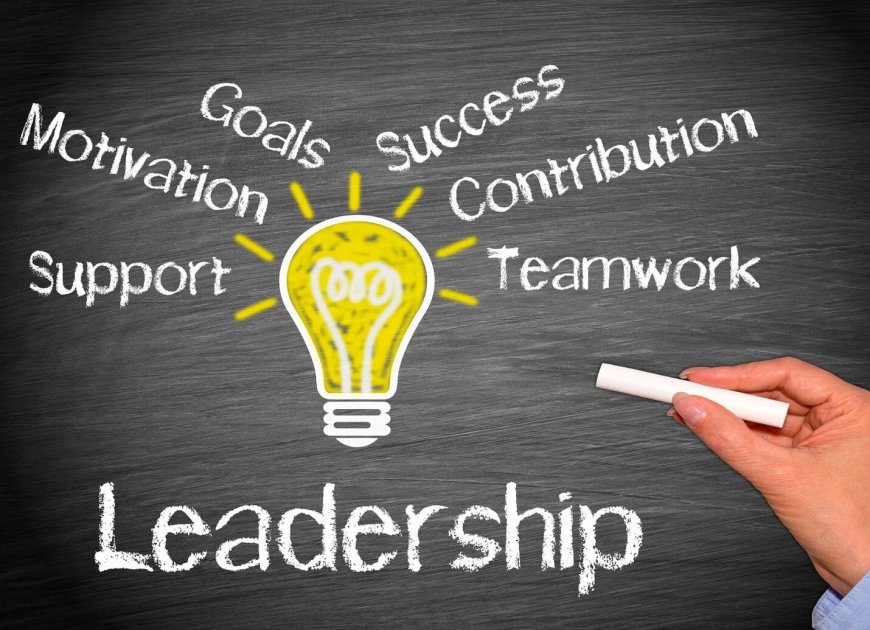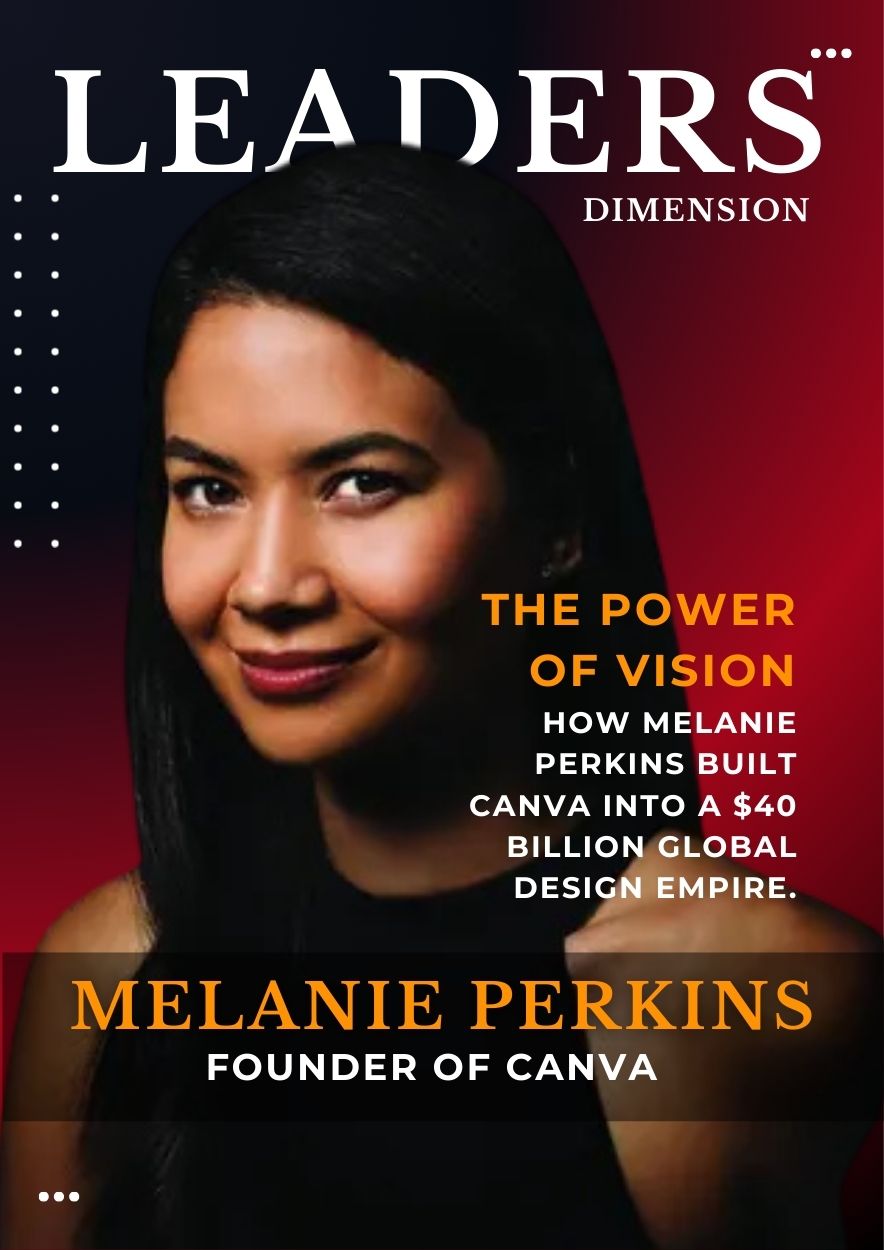Shaping the Future of Leadership: The Skills and Mindsets That Will Define Success
Leadership has never been static; it's a living, breathing thing that shifts and grows with the times. To be a great leader these days means not only keeping up with the times but embracing the new challenges and opportunities that come with them.

As we look ahead to 2025, leadership will continue to evolve in ways that reflect the rapid technological changes, global shifts, and growing emphasis on social and environmental responsibility.
1. Vision and Flexibility
Good leadership in 2025 will require the ability to think long-term while being flexible enough to pivot when necessary. The world is changing faster than ever, with emerging technologies like AI, renewable energy, and biotech reshaping industries in real-time.
The leaders of tomorrow won’t just react to these changes—they’ll anticipate them. A great leader will spot the trends before they become mainstream, positioning their organization not just to survive but to thrive in a rapidly changing world.
Instead of sticking rigidly to old ways of doing things, these leaders will encourage innovation and foster a culture where adaptability is as valued as vision. They'll guide their teams with foresight, but also with the understanding that sometimes a shift in direction may be necessary to remain relevant.
2. Emotional Intelligence and Empathy
Gone are the days when leadership was solely about decision-making and authority. In 2025, the best leaders will have high emotional intelligence—understanding not only their own emotions but also the feelings of those around them. Emotional intelligence will help leaders navigate complex social dynamics, defuse conflicts, and create stronger, more resilient teams.
Empathy will be the cornerstone of leadership in an increasingly globalized world. With a diverse workforce made up of people from various backgrounds and perspectives, leaders who can build inclusive environments where everyone feels heard and valued will inspire loyalty and trust.
They will recognize the unique experiences of their teams and respond with compassion, making mental and emotional well-being a priority. Leaders who genuinely care about their team members' happiness and personal growth will see higher engagement and productivity in return.
3. Tech-Savviness
In a digital-first world, leaders can no longer afford to be strangers to technology. By 2025, good leaders will be well-versed in the latest tech trends and know how to use them to their advantage. Whether it's AI, machine learning, blockchain, or cybersecurity, a leader must understand how these technologies are reshaping their industry.
But it’s not just about knowing the latest tech for the sake of it—it’s about using technology to improve efficiency, foster collaboration, and stay ahead of the competition. With many teams working remotely, leaders will need to use digital tools to keep their teams connected and motivated. Tech-driven decisions will become the norm, with data and analytics guiding strategic direction.
4. Purpose-Driven Leadership
People are increasingly choosing to work for companies that stand for something beyond just making money. In 2025, good leaders will understand that business success is tied to a greater sense of purpose. Consumers, employees, and investors alike are prioritizing values like sustainability, ethics, and social responsibility. A great leader will integrate these values into the very fabric of their business strategy, aligning the company's objectives with a broader societal impact.
Purpose-driven leadership isn’t just about a marketing campaign—it’s about making real, meaningful contributions to the world. Whether that’s through reducing a company’s carbon footprint, promoting ethical practices in the supply chain, or contributing to social causes, leaders in 2025 will understand that purpose and profit can coexist.
5. Resilience in Crisis
The world is unpredictable. Political unrest, economic downturns, health crises—these challenges are a constant in the modern landscape. In 2025, leadership will be about resilience—remaining calm under pressure, guiding teams through uncertainty, and staying true to core values despite adversity.
Great leaders will possess agility—the ability to respond quickly and decisively in times of crisis. They’ll balance short-term solutions with long-term strategies, and remain calm when the stakes are high. A resilient leader will not only navigate challenges but will inspire their teams to persevere, knowing that every obstacle is an opportunity for growth.
6. Empowerment and Decentralized Leadership
Good leadership in 2025 isn’t about micromanaging from the top down. Instead, it’s about creating an environment where everyone feels empowered to take ownership of their work. Leaders will focus on building teams of empowered individuals who feel confident making decisions and taking risks.
Decentralized leadership will allow organizations to become more agile and adaptable. With the right culture, great ideas can come from anyone, not just the top executives. The most successful leaders will foster a culture of autonomy and collaboration, where everyone has a voice in shaping the direction of the organization.
7. Commitment to Diversity, Equity, and Inclusion (DEI)
Diversity, equity, and inclusion will continue to be essential components of leadership in 2025. Effective leaders will not only talk about DEI but will actively promote it within their organizations. They’ll seek out diverse perspectives, create equitable opportunities for all, and ensure that inclusion is not just a buzzword but a core value of the company culture.
Leaders will understand that diverse teams are more innovative and productive. By building a workplace where everyone feels welcome and valued, leaders will unlock the full potential of their teams, driving both creativity and success.
8. Focus on Long-Term, Sustainable Growth
Short-term profits are no longer enough to define leadership success. In 2025, leaders will focus on building sustainable growth that lasts. Whether it’s in terms of financial success, environmental impact, or community contributions, good leaders will prioritize long-term success over quick wins.
They’ll look for ways to create value that lasts—by investing in people, protecting the environment, and ensuring that business practices contribute to a sustainable future. Leaders will balance profit with social responsibility, aiming for a holistic growth model that considers people, the planet, and profits.
9. Clear and Transparent Communication
Effective communication will remain a foundational pillar of good leadership. As businesses grow more complex, with hybrid and remote workforces, the need for clear, transparent communication will be more important than ever. Leaders will need to ensure that their teams understand the company’s goals, decisions, and direction.
Honest communication will build trust, and good leaders will actively listen to feedback from their teams. Transparent decision-making and a commitment to clarity will help leaders navigate the complexities of the modern business landscape while keeping their teams engaged and aligned.
Good leadership in 2025 will be defined by adaptability, emotional intelligence, technological savvy, and a strong sense of purpose. Leaders will need to be visionary yet flexible, resilient yet empathetic, and forward-thinking yet grounded in long-term sustainable goals. They will build diverse, inclusive teams, empower their people, and communicate with transparency and authenticity.
As we look ahead, the leaders who embrace these qualities will be those who not only lead successful businesses but also create positive, lasting change in the world.

